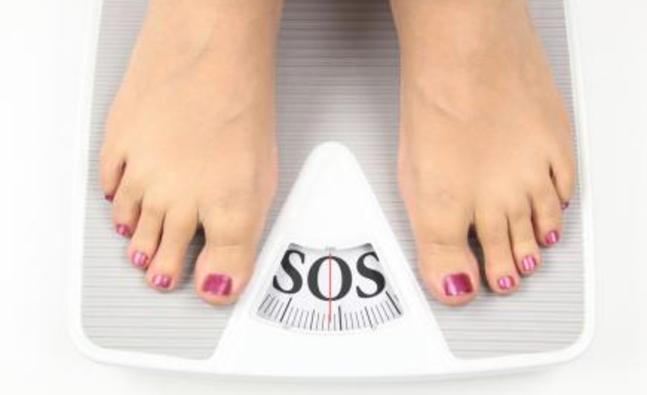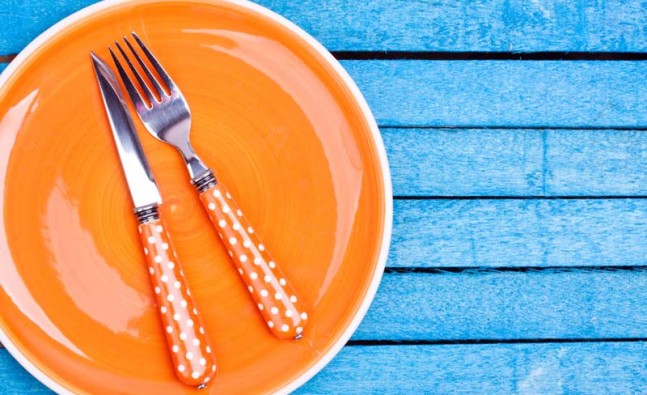Why dieting doesnt work and what does

If youâre struggling to lose weight, find out why your diet could be failing and what you can do about it…
Losing weight is one of the top New Year resolutions but only 20% of people achieve and maintain their weight-loss goals, according to Dr. Jessica Bartfield who specialises in nutrition and weight management at the Loyola Center for Metabolic Surgery & Bariatric Care.
And a lack of willpower is not always to blame! According to a study published in the New England Journal of Medicine, dieting raises hunger-related hormones which stimulate the appetite and could remain at altered levels for up to a year!
So if dieting alone doesnât work, what can you do to lose weight?
Keep it simple
A complex, calorie-counting diet may promise amazing results but trying to achieve too much too soon might not be in your best interest.
Princeton psychologist Eldar Shafir and Harvard economist Sendhil Mullainathan found that the pressures of packing in too much causes âtunnellingâ - a laser-like focus on immediate tasks at the expense of long-term happiness.
And we know that if a task, like dieting, makes us unhappy itâs more likely to result in failure!
Get active
Why relay on dieting alone when you could speed up weigh loss with regular workouts?! As an added bonus, exercise releases mood boosting endorphins.
According to a study published in the Journal of Applied Physiology, aerobic training is the most effective and efficient fat-burning workout. Walking is one of the most accessible forms of aerobic training and many health practitioners advocate a daily 30 minute walk.
However, a study by Duke University found a 30 minute walk is only enough to ward off weight gain. If you want to lose weight, add 15 - 30 minutes to your daily walk and you could lose 14 kilograms in a year!
Eat regularly
Skipping meals will do you no favours in the weight loss department. According to Dr. Bartfield the body needs a steady stream of glucose throughout the day to prevent the metabolism from slowing down.
âEat breakfast every day within one hour of waking up, then eat a healthy snack or meal every three to four hours,â recommends Dr. Bartfield, âTry not to go longer than 5 hours without eating a healthy snack or meal to keep your metabolism steady.â
Watch and write
Watch your portion sizes and make sure youâre sticking to the diet serving sizes. Use measuring cups and spoons to dish up food and start learning how to judge portion sizes by sight. This will help you stick to your healthy eating plan the next time you eat out - without having to haul a measuring cup out your handbag!
"Most people (even experts) underestimate the number of calories they eat per day,â says Dr. Bartfield, âWriting down everything that you eat - including drinks and "bites" or "tastes" of food - can help increase self-awareness.â
Get enough shut-eye
If youâre staying up later than you should or rising at the crack of dawn to fit in a fat-busting workout, think again!
"Studies have shown that people who get fewer than six hours of sleep have higher levels of ghrelin, which is a hormone that stimulates appetite, particularly for high- carbohydrate/high- calorie foods,â says Dr. Bartfield, âIn addition, less sleep raises levels of cortisol, a stress hormone, which can lead to weight gain."
-
How rooibos tea can help you lose weight
-
Quick tips for WEIGHT LOSS: Divide your plate to conquer fat
-
10 Weight-Loss Foods Buried in Your Pantry
This article was written by Marina Liao and repurposed with permission
-
Reduce salt to reduce junk food cravings
-
5 Steps to guarantee successful weight loss in 2016
-
Here’s Another Good Reason Not to Be Scared of Carbs
This article was written by Caroline Praderio and provided by our part
- DON'T MISS
- Choose nuts carefully to avoid weight gain
- Consider lower calorie alternatives
- Burn calories by doing cross-stride walking
- Why you should weigh yourself on Wednesdays
- Climb up to bring weight down
- Whats better than a weekly cheat day for weight loss?
- Give up smoking without gaining weight
- Crazy celeb diet tricks: The Cotton Ball Diet
- Crazy celeb diet tricks: Ear stapling
- What You Need to Know About the DASH Diet




